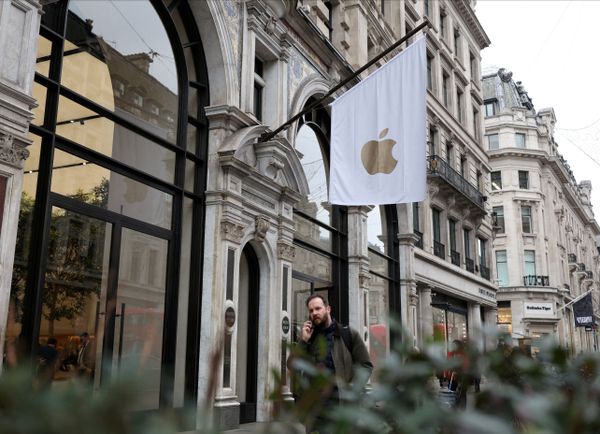NEW YORK, April 4 — United States (US) tech heavyweights, banks and oil majors fell sharply on Friday after China retaliated to Trump's tariffs with steep duties, amplifying worries of a global economic downturn.
China slapped additional duties of 34 per cent on US goods, set to go into effect April 10. It also announced curbs on exports of some rare-earths and added several US firms to its export control list and the "unreliable entities" list, which allows Beijing to take punitive action.
On Wednesday, US President Donald Trump announced 34 per cent duties on imports from China along with a 10 per cent baseline tariff on most goods flowing into the US, triggering a massive market meltdown on Thursday.
Investors are already fretting over potential supply chain disruptions, price hikes and demand destruction for everything from cars and smartphones to sneakers.
Shares of Tesla and Apple — among companies with a large exposure to China — were down eight per cent and four per cent, respectively. While both companies have local production in China, duties on US-imported parts could squeeze margins and force them to raise prices.
"Several tech companies have established local supply chains in China. Most source components from China already, and hence, disruptions should be controllable, though we do expect price hikes on parts and components not being sourced from China," said research firm Everest Group's practice director Nishant Udupa.
For Tesla, already in a bruising price war with local Chinese rivals, raising prices would pressure demand even further.
"Apple's smartphone sales had already been declining in China for some time, faced with growing, cheaper competition. So, the prospect of steep import duties being imposed is likely to sharply erode sales even further," said Hargreaves Lansdown's money and markets head Susannah Streeter.
Shares of other Big Tech firms, including Alphabet, Microsoft, and Meta, which have limited exposure to China, fell between two per cent and four per cent.
"Big Tech stocks did not prove immune to growth worries in 2022, and they are struggling again now for the same reason, and from even higher starting point in terms of valuation this time around," said AJ Bell investment director Russ Mould.
Crude prices, already under pressure from an expected OPEC+ oil output hike in May, added to the losses.
Oil majors Exxon fell 3.5 per cent and Chevron declined 4.1 per cent. Top oilfield service company SLB dropped 5.7 per cent, and the biggest US refiner by volume, Marathon Petroleum, fell 5.8 per cent. Chemicals company DuPont slid 11 per cent.
"The trade war escalated, recession fears rise and consequently oil demand growth is to take a sizeable hit," said PVM analyst Tamas Varga.
Chipmakers are set to face headwinds, too, although the US exports a much smaller amount of electronic equipment to China.
The US exported more than US$15 billion (RM66.5 billion) worth of electrical and electronic equipment to China in 2024, with most of the value coming from integrated circuits, transistors, and other semiconductor devices, according to economic data provider Trading Economics.
In comparison, the US imported more than US$127 billion (RM563.4 billion) in electronic equipment from China last year.
"Semiconductors will feel a greater impact ... We are already witnessing a domestic ecosystem evolve in China, with direct alternatives for every major US semiconductor firm. This trend is likely to accelerate," Udupa said.
Banks' shares extended their declines following the countermeasures. The industry has been clouded by fears that a trade dispute could temper consumer confidence, reduce spending, weaken loan demand and pressure fees from advising on deals.
JPMorgan Chase, the biggest US bank by assets, sank 5.6 per cent. Wall Street titans Goldman Sachs and Morgan Stanley dropped seven per cent each.
GE Healthcare's stock slid nearly 16 per cent, after China also announced export controls on a rare-earth metal that is used in MRI scans. The country's announcement of an anti-dumping investigation into imports of certain medical CT tubes from the US and India added to the worries.
Shares of Detroit automakers Ford and General Motors were down about two per cent and four per cent, respectively.
Automakers depend on a complex global supply chain for parts, while GM and Ford also count on China as a key growth market for their electric vehicles.
Heavy machinery makers Caterpillar and Deere fell 6.5 per cent and 5.4 per cent, respectively, on concerns over demand from one of their largest overseas markets.
Both companies have some exposure to China, a major buyer of construction and agricultural equipment and a key player in global infrastructure spending.
Shares of luxury companies and footwear firms fall in early trading. Ralph Lauren and Capri Holdings are down 5.7 per cent and 7.3 per cent, respectively. Estee Lauder also falls 8.6 per cent.
Tapestry shares fell four per cent while Nike tumbled 4.5 per cent. China is a major revenue contributor, and a broader slowdown in consumer demand could impact growth at these companies.
— Reuters


